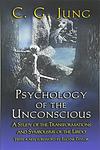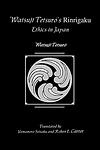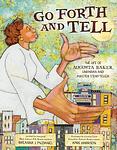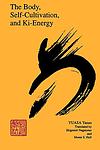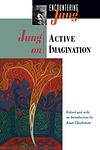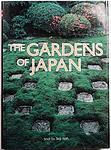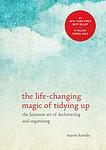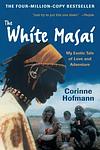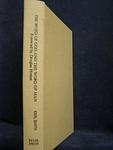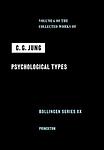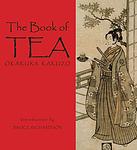The Greatest Japanese, Swiss "Nonfiction" Books Since 1900
Click to learn how this list is calculated.
This list represents a comprehensive and trusted collection of the greatest books. Developed through a specialized algorithm, it brings together 300 'best of' book lists to form a definitive guide to the world's most acclaimed books. For those interested in how these books are chosen, additional details can be found on the rankings page.
Genres
Countries
Date Range
Reading Statistics
Click the button below to see how many of these books you've read!
Download
If you're interested in downloading this list as a CSV file for use in a spreadsheet application, you can easily do so by clicking the button below. Please note that to ensure a manageable file size and faster download, the CSV will include details for only the first 500 books.
Download-
1. Memories, Dreams, Reflections by Carl Jung
This book is an autobiography of a renowned psychologist who shares his life experiences, insights, and the development of his theories. The narrative delves into his childhood, his career, his relationship with Sigmund Freud, and his exploration into the human psyche. It also provides an in-depth look at the author's dreams and visions, which greatly influenced his work, and his thoughts on subjects such as life after death, reincarnation, and the collective unconscious.
-
2. On Death and Dying by Elisabeth Kübler-Ross
This groundbreaking book explores the five stages of grief experienced by terminally ill patients. The author, a Swiss-American psychiatrist, introduces the concept of the five stages: denial, anger, bargaining, depression, and acceptance, which has since been universally recognized and applied in various fields. The book is based on the author's series of interviews with dying patients, providing an empathetic and insightful look into the emotional and psychological experiences of those facing death.
-
3. Love in the Western World by Denis de Rougemont
The book is an in-depth exploration of the concept of love as it has evolved in Western society, tracing its development from the myth of Tristan and Iseult to modern times. The author argues that the idea of passionate, romantic love that is prevalent in the West is fundamentally a form of destructive passion, often leading to pain and tragedy. The book also delves into the socio-cultural aspects of love, examining how societal norms and expectations shape our understanding and experience of love.
-
4. Mars by Fritz Zorn
"Mars" is a poignant autobiographical account of a young man's life and his battle with terminal cancer. The narrative delves into the author's affluent yet emotionally barren upbringing in a Swiss suburb, which he refers to as "Mars," symbolizing its cold and alienating environment. The book is a critique of his repressive bourgeois society, which he believes contributed to his psychological and physical illness. Through introspective and often angry prose, the author explores themes of alienation, the search for identity, and the impact of societal norms on individual well-being. His struggle is not only against the disease but also against the cultural and familial constraints that stifled his emotional development.
-
5. Grid Systems In Graphic Design by Josef Müller-Brockmann
This book is a seminal guide to graphic design and typographic composition, focusing on the use of grid systems as a foundational tool for ensuring visual coherence and hierarchy across various design projects. It provides designers with a methodical approach to organizing text and images in a clean, logical, and aesthetically pleasing manner. Through systematic arrangement, the grid serves as an essential framework that can be applied to a wide range of design work, from print media to digital interfaces. The book delves into the principles, applications, and benefits of grid systems, offering practical advice, examples, and clear illustrations to help designers harness the power of grids to create effective, impactful visual communications.
-
6. Psychology of the Unconscious by Carl Jung
"Psychology of the Unconscious" is a pioneering work that explores the complex landscape of the human unconscious, introducing theories that would later become central to understanding personality and human psychology. The book delves into the idea of the collective unconscious, archetypes, and the process of individuation. It further discusses the role of dreams, myths, and symbols in understanding and interpreting the unconscious mind. The author uses case studies and examples from various cultures to support his theories, offering a comprehensive view of the human psyche.
-
7. Judgement and Reasoning in the Child by Jean Piaget
This book is a seminal work in the field of child psychology, exploring the ways in which children develop their cognitive abilities and reasoning skills. The author delves into the mental processes of children, focusing on how they form judgments, understand cause and effect, and develop logical thinking. The book also discusses the stages of cognitive development, highlighting the shift from intuitive to logical thinking. This influential work has greatly contributed to our understanding of child development and education.
-
8. Watsuji Tetsuro's Rinrigaku by Watsuji Tetsuro
"Watsuji Tetsuro's Rinrigaku" explores the intricate nature of ethics from a distinctly Japanese perspective, emphasizing the interconnectedness of individual and social morality. The book delves into the concept of 'betweenness' as a fundamental structure of human existence, arguing that ethical relations are inherently tied to the spatial and temporal contexts within which individuals live. This work critically examines Western ethical theories, proposing a communal and geographical approach to understanding human relations, and offers a comprehensive framework for considering moral decisions within the collective fabric of society.
-
9. Man and His Symbols by Carl Jung
This book is a comprehensive introduction to the world of depth psychology, exploring the significance of dreams, art, and symbols in everyday life. The author and his colleagues delve into the unconscious mind, discussing its influence on our thoughts, behaviors, and experiences. The book emphasizes the importance of understanding and interpreting symbols as a means to gain insights into our unconscious motivations, fears, and desires. It also discusses the role of archetypes and collective unconscious in shaping human behavior and culture.
-
10. An Inquiry Into The Good by Nishida Kitarō
"An Inquiry into the Good" explores the philosophical concept of 'good' through an examination of reality and experience. The author integrates Western philosophical approaches with Eastern thought, particularly Zen Buddhism, to delve into topics such as pure experience, intuition, and the unity of consciousness. The work seeks to establish a foundation for understanding reality that transcends traditional dualities such as subject-object and ideal-real, proposing instead a notion of reality that is dynamic and continuously self-creating. This philosophical inquiry aims to articulate a comprehensive worldview that harmonizes ethical, metaphysical, and epistemological perspectives.
-
11. An Introduction To Zen Buddhism by D.T. Suzuki
This book serves as a concise primer on Zen Buddhism, exploring its philosophical underpinnings and its practice. It delves into the history of Zen and its roots in the teachings of the Buddha and subsequent development in China and Japan. The text elucidates key concepts such as satori (enlightenment), the importance of meditation, and the use of koans (paradoxical anecdotes or riddles) in training the mind to transcend dualistic thinking. Aimed at Western readers, the book also discusses the potential of Zen to influence modern life and thought, providing a thoughtful introduction to those seeking spiritual insight and a deeper understanding of Eastern philosophy.
-
12. The Master Of Go by Yasunari Kawabata
The book is a thoughtful reflection on the changing face of Japanese culture, told through the lens of a professional Go match between an aging master, representing the old guard and traditional values, and his young, innovative challenger who embodies the new ways. As the intense match unfolds, it becomes more than just a game; it is a poignant exploration of tradition versus progress, the individual versus society, and the tension between the spiritual purity of the art and the commercialism of modern times. The narrative, based on a real-life event, delves deep into the psychology of its characters and the strategic intricacies of Go, offering a subtle yet profound meditation on the nature of competition and the end of an era.
-
13. The Course In General Linguistics by Ferdinand de Saussure
"The Course in General Linguistics" is a foundational text in the field of linguistics that outlines the principles of structural linguistics and introduces key concepts such as the linguistic sign, the distinction between langue (language as a system) and parole (language as used in context), and the idea of synchronic versus diachronic analysis. The work emphasizes the arbitrary nature of the sign, which consists of the signifier (the form of the word or phrase) and the signified (the conceptual meaning). This book, compiled from notes by students from the lectures given by its author, has had a profound impact on the development of linguistic theory and has influenced various other disciplines, including anthropology, psychology, and literary theory.
-
14. Hiroshima Notes by Kenzaburō Ōe
"Hiroshima Notes" is a poignant collection of essays that delve into the aftermath of the atomic bombing of Hiroshima, exploring the enduring impact on the survivors and the city itself. The author, through a series of visits to Hiroshima in the 1960s, reflects on the moral and ethical implications of nuclear warfare, the resilience of the human spirit, and the responsibilities of humanity. Through interviews with survivors and thoughtful contemplation, the book provides a deep and multifaceted perspective on suffering, healing, and the quest for peace in the shadow of one of history's most devastating events.
-
15. The Body by Yasuo Yuasa
"The Body" explores the intricate relationship between the mind and body from the perspective of Eastern philosophies and medicine, particularly focusing on Japanese thought. The book delves into how cultural differences between the East and West influence the understanding and treatment of the body. It discusses the historical and philosophical evolution of body concepts in Japan, integrating theories from Western psychoanalysis and philosophy to challenge the often dualistic approach seen in Western thought. The author proposes a more holistic, integrated view of the body-mind connection, emphasizing the importance of understanding this relationship in the context of human health and well-being.
-
16. Two Essays on Analytical Psychology by Carl Jung
This book contains two comprehensive essays that delve into the depths of analytical psychology. The first essay explores the role of the unconscious in the human psyche, discussing its influence on dreams, mythology, and mental illnesses. The second essay delves into the process of individuation, which is the psychological process of integrating the conscious and unconscious parts of the mind to achieve self-actualization. This work is a foundational text in understanding the theories and concepts of analytical psychology.
-
17. The Gardens Of Japan by Teiji Itoh
"The Gardens of Japan" explores the art and aesthetics of Japanese gardens, tracing their development from ancient times to the modern era. The book delves into various garden styles, from the serene rock gardens of Zen Buddhism to the ornate tea gardens and expansive stroll gardens. Richly illustrated and detailed, it examines the philosophical and cultural underpinnings that have shaped garden design in Japan, highlighting the intricate interplay of nature, spirituality, and art. The author provides insights into the symbolic elements of these gardens, their use of space and natural materials, and the meticulous care that goes into their creation and maintenance, offering readers a deep appreciation of this enduring art form.
-
18. The Portable Jung by Carl Jung
"The Portable Jung" is a comprehensive collection that encapsulates the core ideas of analytical psychology, as developed by its founder. The book offers a selection of writings that delve into the concepts of the collective unconscious, archetypes, dreams, and individuation. It serves as an accessible introduction to Jung's transformative ideas on the psyche, providing readers with insights into the depths of human behavior and the psychological underpinnings that influence personal growth and understanding. This compilation not only highlights Jung's profound influence on psychology but also his interdisciplinary reach into areas such as mythology, religion, and culture.
-
19. The Life Changing Magic Of Tidying Up by Marie Kondo
"The Life Changing Magic of Tidying Up" is a practical guide that offers a fresh perspective on decluttering and organizing one's home. The author introduces the KonMari Method, a systematic approach to tidying that encourages individuals to keep only items that truly spark joy in their lives. Through insightful anecdotes and step-by-step instructions, the book provides valuable insights on how tidying can lead to a transformative and joyful lifestyle.
-
20. The White Masai by Corinne Hofmann
The book is a true story of a Swiss woman who, while on holiday in Kenya, falls in love with a Samburu warrior. Defying her family, friends, and cultural norms, she decides to leave her life in Switzerland behind to marry him and live in his remote village. The narrative delves into her challenging and transformative journey as she adapts to a vastly different culture, learns the local customs, and navigates the complexities of her interracial marriage and the community's expectations. Her story is one of love, resilience, and the pursuit of happiness in the face of extraordinary cultural differences.
-
21. The Word of God and the Word of Man by Karl Barth
This book presents a series of sermons that challenge the traditional religious understanding of the time. The author argues that the word of God should not be confined to the Bible alone, but should also include the divine revelation through Jesus Christ. He emphasizes the importance of faith and the need for a personal relationship with God, while criticizing the church for its institutionalization and its focus on rituals and dogma. The book is considered a cornerstone in the development of neo-orthodox theology.
-
22. Psychological Types by Carl Jung
"Psychological Types" is a seminal work that delves into the theory of psychological types, positing that there are fundamental differences in the way individuals perceive and interpret the world. The book introduces the concept of introverted and extroverted personality types, along with the four psychological functions of thinking, feeling, sensation, and intuition. The author argues that these personality types and functions shape our attitudes and behaviors, leading to different ways of interacting with and understanding the world around us.
-
23. The Cult Of Emptiness The Western Discovery Of Buddhist Thought And The Invention Of Oriental Philosophy by Urs App
This book delves into the fascinating journey of how Buddhist thought was introduced and interpreted in the West, tracing the origins back to the encounters between European intellectuals and Asian cultures. It explores the notion of "Oriental Philosophy" as a construct of Western imagination, shaped by the translations and interpretations of texts that were often misunderstood or taken out of context. The author critically examines the romanticization and misconceptions that led to the creation of a mystical and exotic Eastern philosophy, highlighting the impact of these interpretations on both Western perceptions of Buddhism and the development of modern philosophy. Through a meticulous historical analysis, the book reveals the complex dynamics of cultural exchange, intellectual curiosity, and the quest for spiritual understanding, shedding light on the enduring fascination with the concept of emptiness and the cultural constructs that have emerged around it.
-
24. The Book Of Tea by Kakuzō Okakura
"The Book of Tea" explores the intricate and nuanced philosophy behind the Japanese tea ceremony, presenting it as a blend of Zen Buddhism, Taoism, and the ethics of the Samurai. The author delves into the aesthetic and cultural significance of tea in Japan, discussing how it influences various aspects of life and art, from architecture to flower arranging. The book also reflects on the broader implications of tea as a spiritual and meditative practice, emphasizing simplicity, naturalness, and a profound appreciation for the beauty of the everyday. Through this lens, the tea ceremony becomes a metaphor for a harmonious and mindful approach to life.
-
25. Totto Chan, The Little Girl At The Window by Tetsuko Kuroyanagi
The book is a charming autobiographical memoir of a young girl's experiences at an unconventional school in Tokyo during World War II. The narrative focuses on the unique educational approach of the school's headmaster, who values freedom, creativity, and individuality in the educational process. Through a series of heartwarming episodes, the book illustrates how the school becomes a delightful haven for the girl, fostering her curiosity and love of learning amidst the backdrop of a society facing the challenges of war. The story is a testament to the impact of progressive education on young minds.
Reading Statistics
Click the button below to see how many of these books you've read!
Download
If you're interested in downloading this list as a CSV file for use in a spreadsheet application, you can easily do so by clicking the button below. Please note that to ensure a manageable file size and faster download, the CSV will include details for only the first 500 books.
Download




